
On December 19, 2021, the 6th National Development Forum, hosted by Peking University National School of Development (NSD) in association with CNPC National High-end Think Tank, was held in Chengze Garden Campus of NSD, focusing on "National Development in the Era of Major Changes".
The Forum brought together two Nobel laureates in economics, scholars from institutions affiliated to Peking University such as the National School of Development (NSD), the Institute of South-South Cooperation and Development (ISSCAD), the Institute of Global Health and Development, and the Institute of New Structural Economics, as well as officials and experts from business communities and academia. They discussed the major challenges confronting national development and shared insights on national development for the sake of promoting world integration.
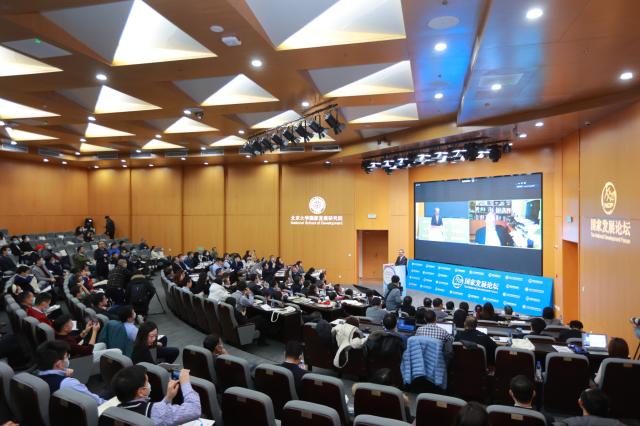
The agenda of the Forum included the opening ceremony, speeches and dialogues by special guests, panel discussions, closing speeches and dialogues, and in the afternoon there were four synchronic sub-forums on management, global cooperation and South-South development, Digital China, and U.S.-China energy.
Opening Ceremony
Prof. CHEN Chunhua, the rotating chair of the forum, K.C. Wong Chair Professor of Peking University and Dean of BiMBA Business School of NSD, presided over the opening ceremony.

Prof. CHEN Chunhua
On behalf of the organizer, YAO Yang, Dean of the NSD, Executive Dean of South-South College and Distinguished Professor of Boya Plan of the Peking University, delivered the opening speech. He said this was the first time the forum was held in Chengze Garden Campus, and that the content was exciting. NSD and CNPC National High-end Think Tank are both members of the first batch of national high-end think tanks, and he was glad that NSD could co-host the forum and cooperate with CNPC National High-end Think Tank.

Dean YAO Yang
In a speech on behalf of the co-organizer, ZHANG Hualin, Assistant to the General Manager of CNPC, Executive Director and Party Secretary of the CNPC Economics and Technology Research Institute, and Director of the National High-end Think Tank Research Center, noted that the two think tanks had reached cooperation just in time, and their work would go in depth in such areas as research, results delivery, event organization and talent training. CNPC will also guarantee and provide all-around support for their cooperation, he added.
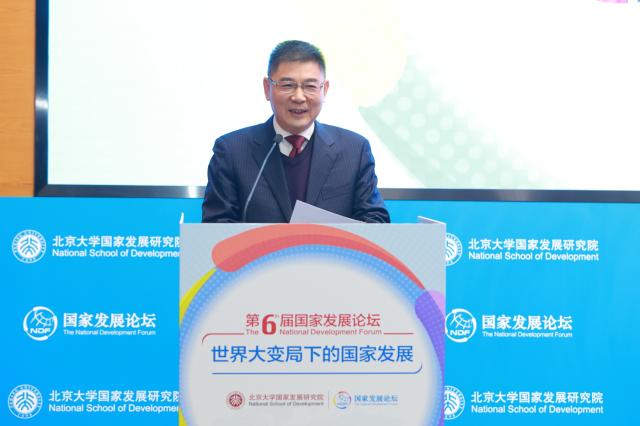
Mr. ZHANG Hualin
Following the speech, a strategic cooperation agreement on think tank development was signed on site by CNPC National High-end Think Tank Research Center Deputy Director LV Jianzhong and NSD's YAO Yang, in the presence of eight guests present from both sides.

Signing Ceremony
Lectures and Dialogues by Special Guests
Prof. Joseph Stiglitz, 2001 Nobel Laureate in Economics, made the first lecture. In his speech, he focused on U.S.-China economic issues and the evolution of the international landscape," saying that the world is facing global problems such as climate change and the COVID-19 pandemic, which can only be solved through global cooperation, and that cooperation in certain areas has been successful, and there is “absolute necessity of cooperation among the two largest economies of the world for the wellbeing of all of those sharing this planet.”
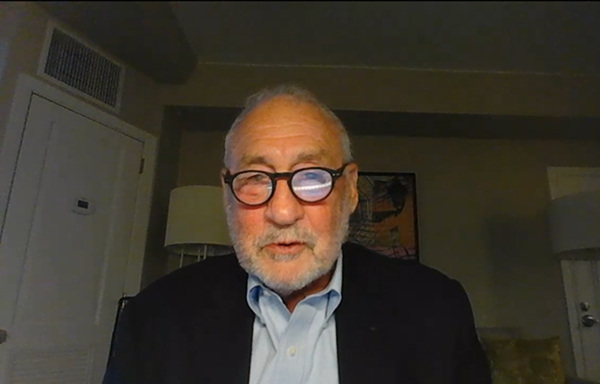
Prof. Joseph Stiglitz
Prof. Justin Yifu LIN, Honorary Dean of NSD, Dean of ISSCAD and of the Institute of New Structural Economics at Peking University, had an on-line conversation with Prof. Stiglitz. They had in-depth exchange of views on the new changes of China-US relations under the Biden administration, how to use knowledge to avoid unstable national relations induced by economic development, choice of development path in developing countries, and US’s response to inflation, etc..
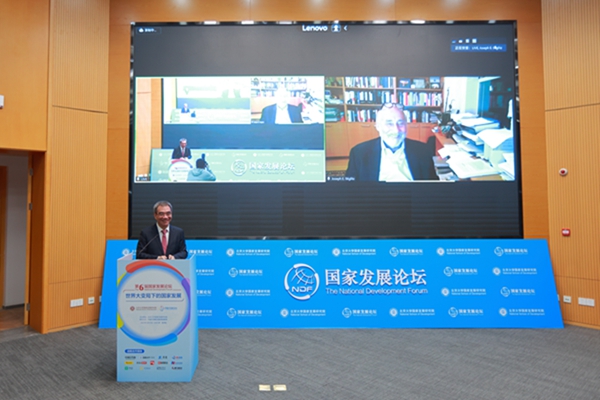
On-line Dialogue between Prof. Stiglitz and Prof. Lin
Prof. LIN Jianhua, Director of the Center for Future Management Education and former President of Peking University, then delivered a keynote speech on “National Attributes of Universities”, stating that the reform of Chinese universities has entered a deep water zone and the national attributes of universities are getting stronger, but the basic attributes are still the personal attributes of education and the human attributes of academics. In order to promote education and develop academics, we must balance and integrate national attributes, personal attributes and human attributes.

Prof. LIN Jianhua
Panel on Population and Education
The morning session was concluded with the first panel discussion on population and education, which was moderated by Prof. WANG Min, tenured associate professor of economics of NSD and deputy director of the Center for Environmental and Energy Economics of Peking University.
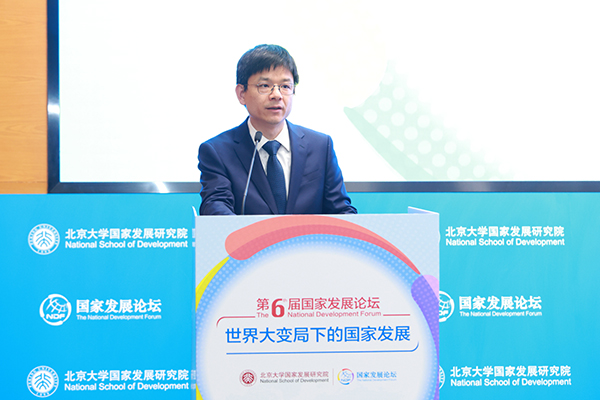
Prof. WANG Min
Prof. ZHAO Yaohui, Professor of Economics of NSD, spoke on the topic of “Maternity, Female Employment and Family”. Prof. LEI Xiaoyan, Professor of Economics of NSD and Yangtze Young Scholar of the Ministry of Education, focused on the theme of “Promoting Education Reform, Improving Education Level and Addressing the Challenges of Aging”. Prof. YAO Yang stated that the core of common prosperity is education fairness. After their speeches, the three professors had a round-table discussion.
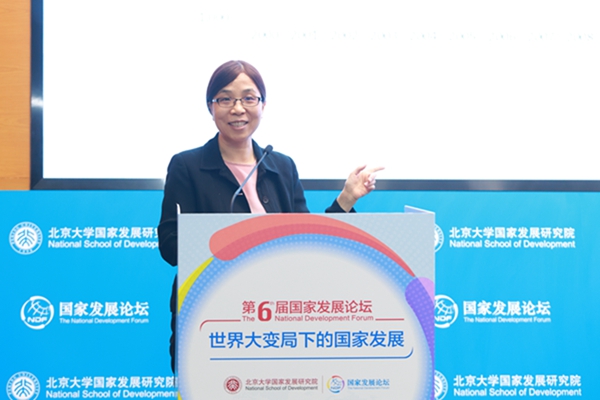
Prof. ZHAO Yaohui

Prof. LEI Xiaoyan

Round-table Discussion
Panel on Platform Economy
The first panel discussion in the afternoon focused on the platform economy and was moderated by Prof. SHEN Yan, Professor of Economics at the NSD and Deputy Director of Peking University's Institute of Digital Finance. The participants included Prof. HUANG Yiping, Deputy Dean of the NSD and Director of the Institute of Digital Finance of Peking University; Prof. LI Lixing, Professor of Economics at the NSD, Peking University's Boya Young Scholars; Prof. WANG Hao, Professor of Economics at the NSD; and Prof. XI Tianyang, tenured Associate Professor of Political Economy at the NSD. They discussed in depth the characteristics and achievements of the platform economy, its overall impact on employment, its significance in promoting national governance in terms of equity and fairness, and the issue of restricting competition, etc..
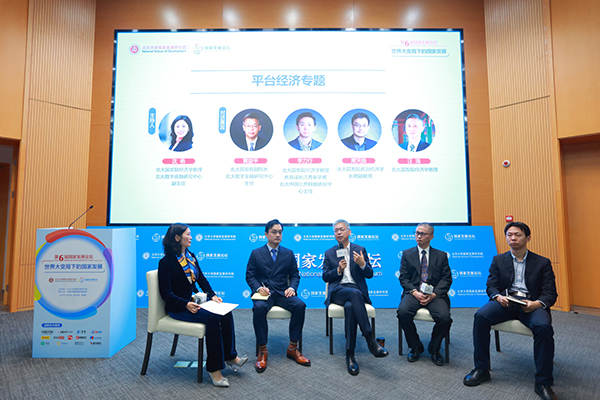
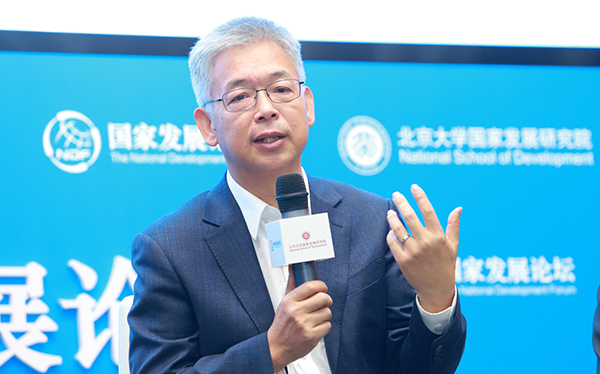
Prof. HUANG Yiping
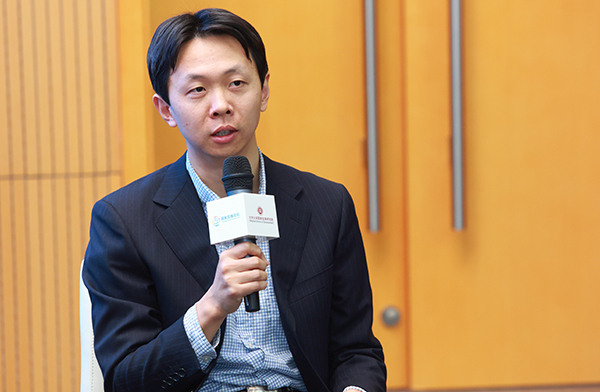
Prof. LI Lixing

Prof. XI Tianyang

Prof. SHEN Yan
Macroeconomic Situation Outlook and the 59th Economic Observation
This panel focused on the macroeconomic situation and was moderated by Prof. HUANG Zhuo, a tenured Associate Professor of Economics at the NSD, a Fashu Scholar and Deputy Director of the Institute of Digital Finance. Mr. WU Ge, Chief Economist of Changjiang Securities, Prof. ZHAO Bo, Senior Associate Professor of Economics at NSD, and Prof. LU Feng, Sinar Mas Professor of Economics at the NSD, spoke on the topics of "Macroeconomics and Employment", "Property Tax Reform" and "Triple Pressure on China's Economy" respectively, and then had a roundtable discussion.
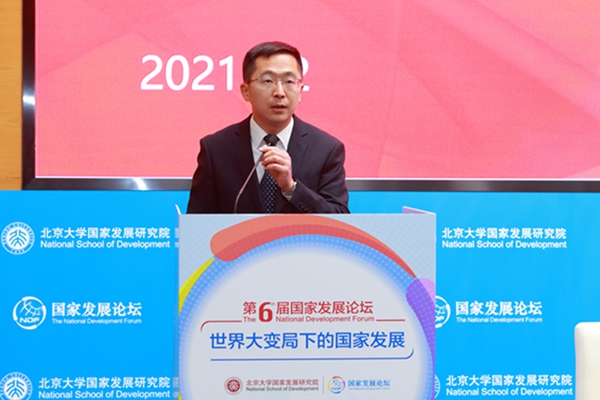
Mr. WU Ge

Prof. ZHAO Bo

Prof. LU Feng
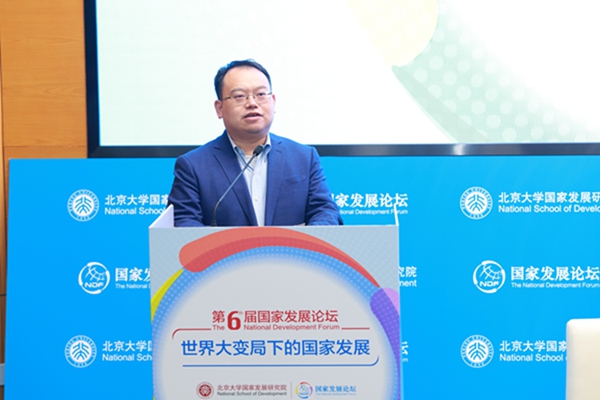
Prof. HUANG Zhuo
Closing Speeches and Dialogue
Prof. Gordon Guo’en LIU, Boya Professor at Peking University, Director of the Academic Committee of the NSD and Director of the Peking University Institute for Global Health and Development, moderated the closing speech and dialogue session of the Forum.
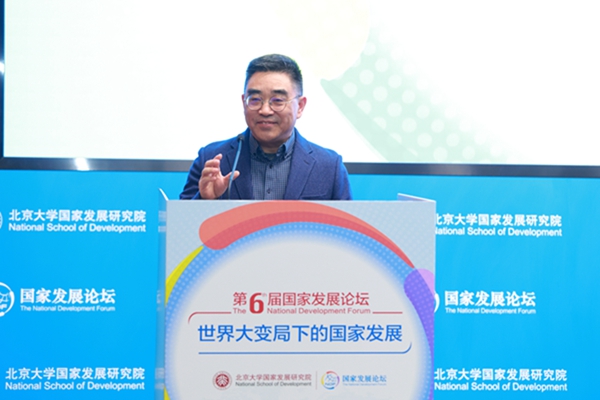
Prof. Gordon Guo'en LIU
Prof. Justin Yifu LIN gave a closing speech, emphasizing that development is the foundation and key to all problems in China. To realize the great rejuvenation of the Chinese nation, China needs to maintain a relatively rapid development in order to contribute to a stable world. Speeding up of development is necessary for building a new development pattern with domestic circulation as the mainstay and ensuring the dominant position of domestic circulation .
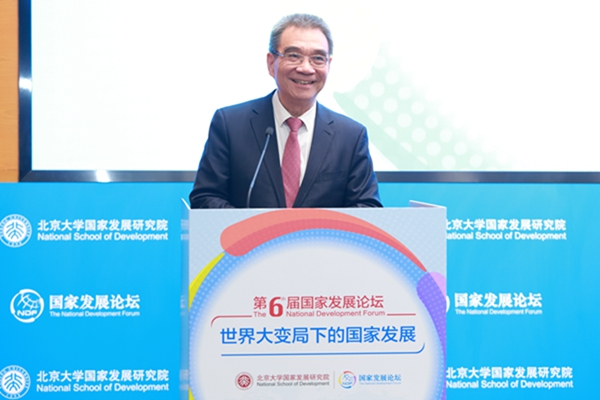
Prof. Justin Yifu LIN
Prof. A. Michael Spence, the 2001 Nobel Laureate in Economics, said in a video lecture that the world faces unprecedented challenges such as harnessing the COVID-19 pandemic, recovering the economy, and coping with climate change, which must be tackled together through global cooperation. In addition, China has set the goal of common prosperity. China and the US must establish new engagement strategies to ensure inclusive growth.

Prof. A. Michael Spence
Afterwards, Prof. YAO Yang had a dialogue with Prof. A. Michael Spence, focusing on in-depth exchanges on topics such as the regulation of cross-border flows of data, response to global climate change, and ways to better achieve common prosperity.
Dialogue betwwen Prof. A. Michael Spence and Prof. YAO Yang
Four parallel sub-forums
Four parallel forums were held in the afternoon, bringing together professionals in the fields of politics, business, and academia to have in-depth discussions on corporate strategy, sustainable development and overseas operations of Chinese companies, digital transformation, and Sino-US energy cooperation.
Management Forum on on Corporate Strategy
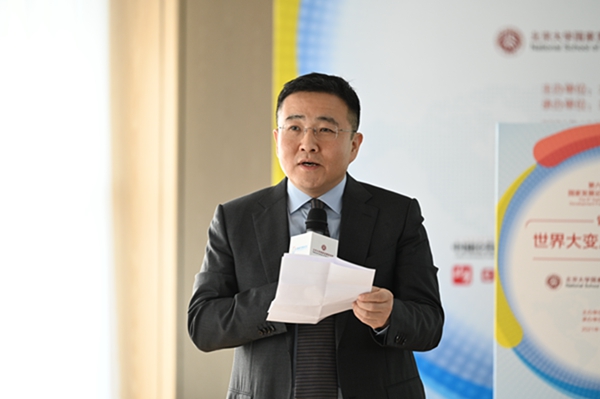
Prof. ZHANG Li
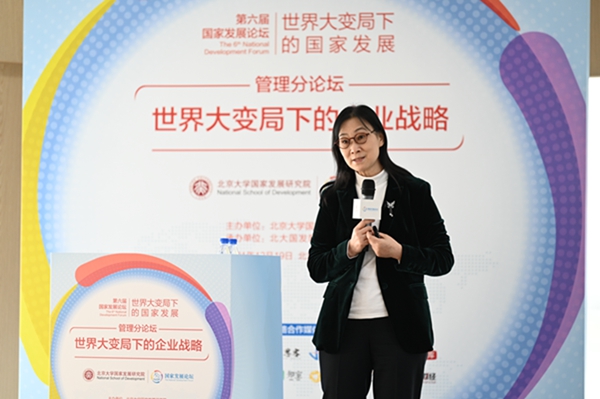
Prof. CHEN Chunhua
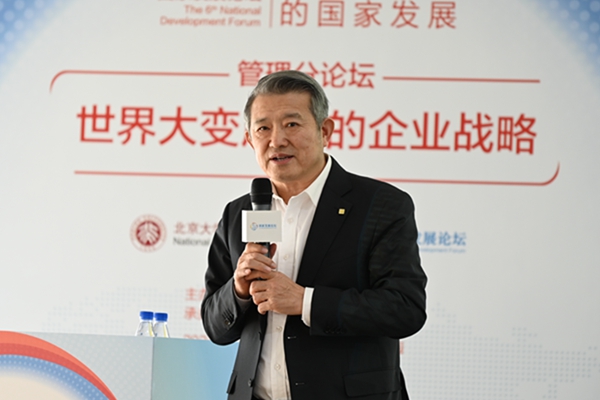
Mr. CHEN Dongsheng
Round-table discussion
ISSCAD sub-forum on sustainable development and overseas operations of Chinese companies
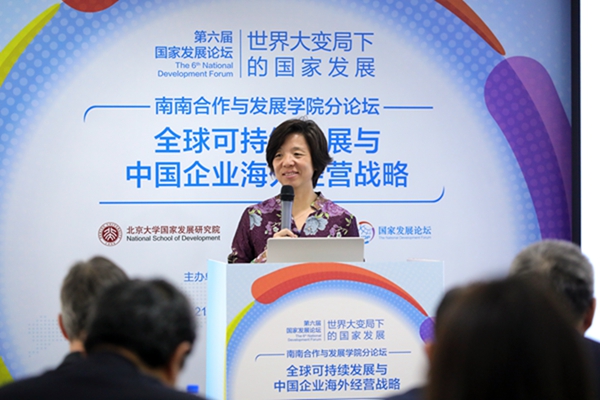
Prof. ZHOU Yongmei
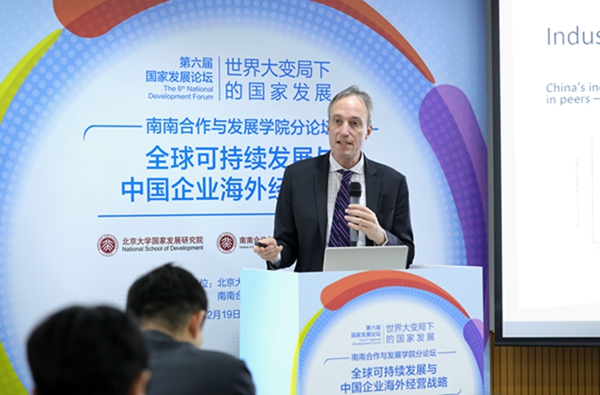
Mr. Martin Raiser, World Bank Country Director for China and Mongolia, and Director for Korea
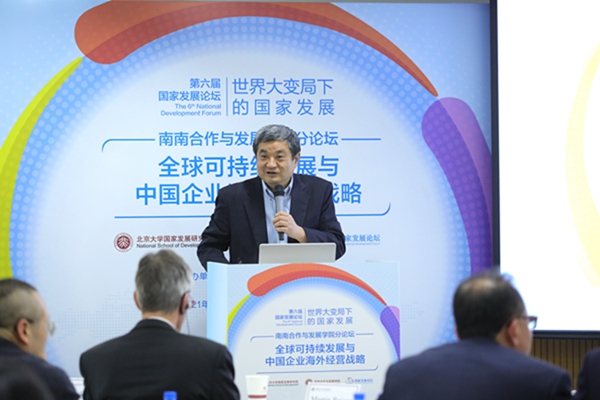
Prof. ZHA Daojiong
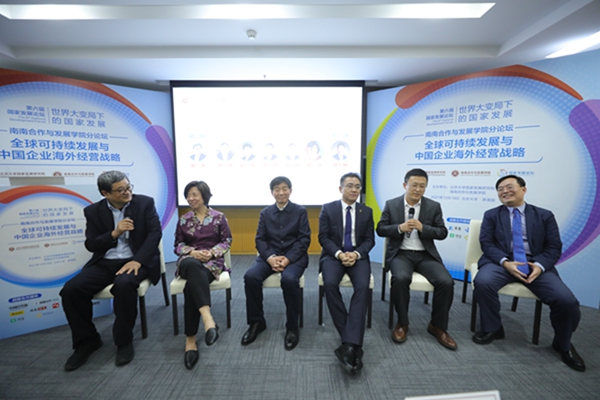
Round-table discussion
Sub-forum on Digital Transformation
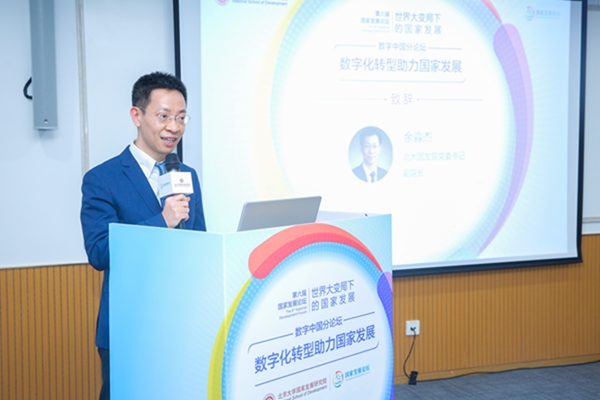
Prof. YU Miaojie, Deputy Dean of NSD
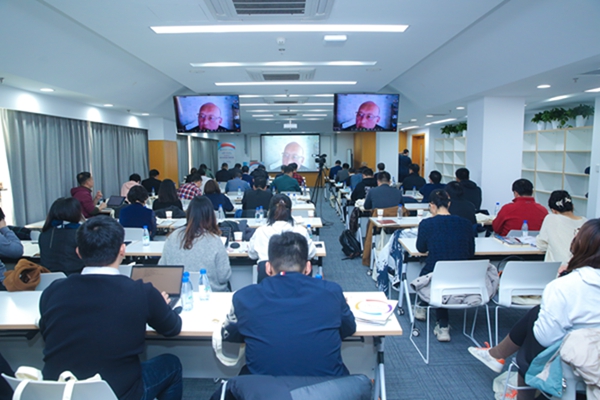

Round table discussion
Sub-forum on Sino-US energy cooperation
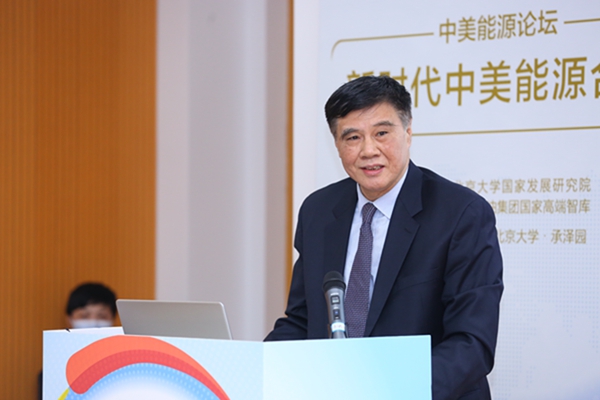
Mr. ZHANG Xiaoqiang, Former Deputy Director of NDRC
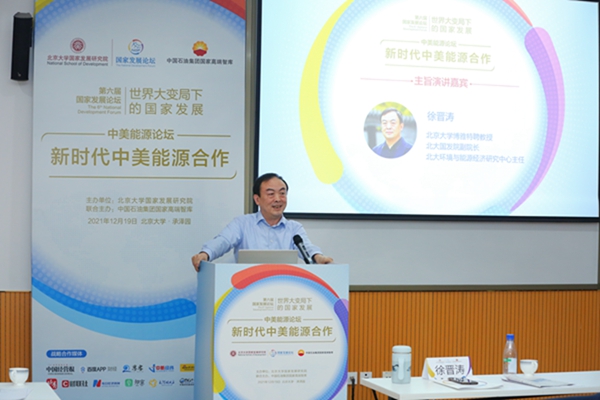
Prof. XU Jintao
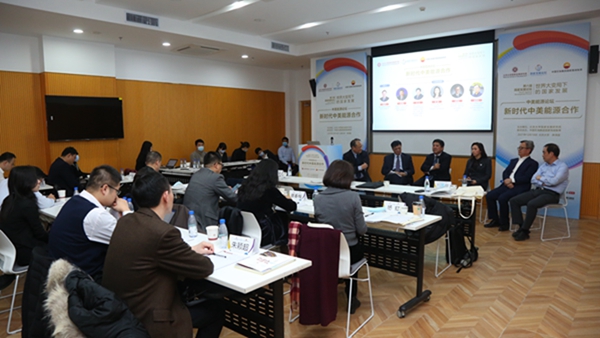
All the activities of the main Forum were synchronized on more than a dozen platforms including China Business News, Baidu Finance, Xinhua Sike, Sina Finance, Sohu Finance, Financial Association, Zhishi, China-Singapore Jingwei, Dahe Finance Cube, Daily Economic News, China Knowledge Network, etc, and were covered by many media agencies. The management forum was also broadcast live to the public. The South-South sub-forum and the Digital China sub-forum invited multiple students and listeners to interact through Zoom. A total number of 5 million viewers watched the proceedings online.